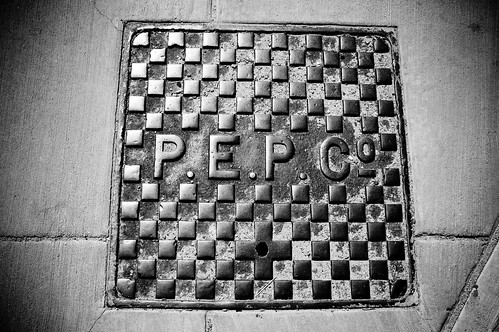It’s insult to injury, really, the bill stabilization adjustment. The line item on your next Pepco bill, Maryland readers, that says “bill stabilization adjustment” is the result of the work of the Maryland Public Service Commission and the utilities, and it allows the power companies to charge you for when you didn’t have power as a result of damage to their system.
Translated? They can bill you for when you didn’t have power.
They can bill you for when your refrigerator was off and its contents were quickly spoiling.
They can bill you for when the A/C was off, and you were sweltering in your living room.
They can bill you for when you couldn’t do your laundry, or watch TV, or even run a fan.
They can’t bill you much (according to one expert, it’ll be less than a buck on average), but every penny they collect with that bill stabilization adjustment line item is a penny you pay with a spirit of spite, hatred and vitriol, a reminder that they’re not doing everything they can to make their system more reliable, and they can still benefit from it. One need only read Drew Magary’s epic profanity-strewn rant on Gawker about having to pay the small fee to see that this one’s already out of Pepco’s hands.
So, when does it change around here? When do we get to remind the public utilities that they ought to be serving the public? Soon. I’ve talked with two separate groups working hard to give DC and Maryland customers more options for their power company, one backed by Greenpeace Director of Online Strategy Kevin Grandia, another backed by Robert Robinson (they’re still getting their petition efforts together). Both are gearing up for a long effort to see if they can’t remove Pepco’s monopoly status for the region, and to municipalize the utility’s area of control here in the District, hoping that multiple companies might compete to take over the DC power market and focus on the reliability of the system, as opposed to its profitability.
Friday will be an interesting day, as the Council of DC has called for hearings at the Wilson Building to ask Pepco about the failings surrounding the storm on the 29th of June that left more than half of the city and surrounds without power. That will be fascinating, as both groups of petitioners are working to be present at those hearings and to remind everyone of the 2010 Washington Post analysis that showed that Pepco’s customers suffered from more outages than most other major cities, that outage times were longer than in other cities, and that real reliability efforts were not undertaken. In the two years since that report was released by the Post, we’ve still seen a high number of outages in the District, as well as a failure on the part of Pepco to underground their equipment for higher reliability.
If you want to testify at the hearing, you have until the close of business to register with the council and provide copies of your written testimony. There are more details on the hearing page for how to do this and submit your information.




The wusa article says it will NOT appear as a line item:
“Neither BGE nor Pepco would explain how it would appear on customers’s bills, but a state official said it would be rolled into the customer’s delivery fee – without a line item identifying the charge – so many people won’t even know what they’re be charged.”
which seems particularly nefarious to me
Its important to understand what the first intention of the BSA actually is though. (Also, its not just Maryland, DC has decoupled rates -and hence a BSA too)
With a distribution utility like Pepco, the way they’re compensated produces a throughput bias. They only make more money if they send more electrons through the wires.
One of the impacts of this is that they have absolutely no incentive to promote any kind of energy efficiency efforts on the part of customers. Regulators have recognized this and dealt with the issue in various ways – Pepco’s BSA rider is one such mechanism.
Essentially they determine just how much money they’ll need from a particular group of customers (group in the sense of a rate class: residential, small commercial, large commercial, etc.) in order to hit their PSC-approved revenue targets. Then, on a month by month basis they look at the revenue from each group. If its short of the revenue requirements – because less energy was consumed – then they true it up via the BSA rider. If they exceed revenue – because more energy was consumed than predicted – then it becomes a credit to consumers within that rate class.
Typically the effects of outages from storms are excluded from the BSA calculations – its intended to deal with regular efficiency/conservation measures, not extraordinary events like storms.
I want to see a list of the Maryland Senators and Representatives who voted FOR the “Bill Stabilization Adjustment”. They need to be tarred and feathered!
Excellent writeup Brad. Can you give us a link to this “de-regulation” effort. We in Brookland have been thwarted by Pepco at every turn, and if we can deregulate powerline maintenance and investment I’d like to actively help.